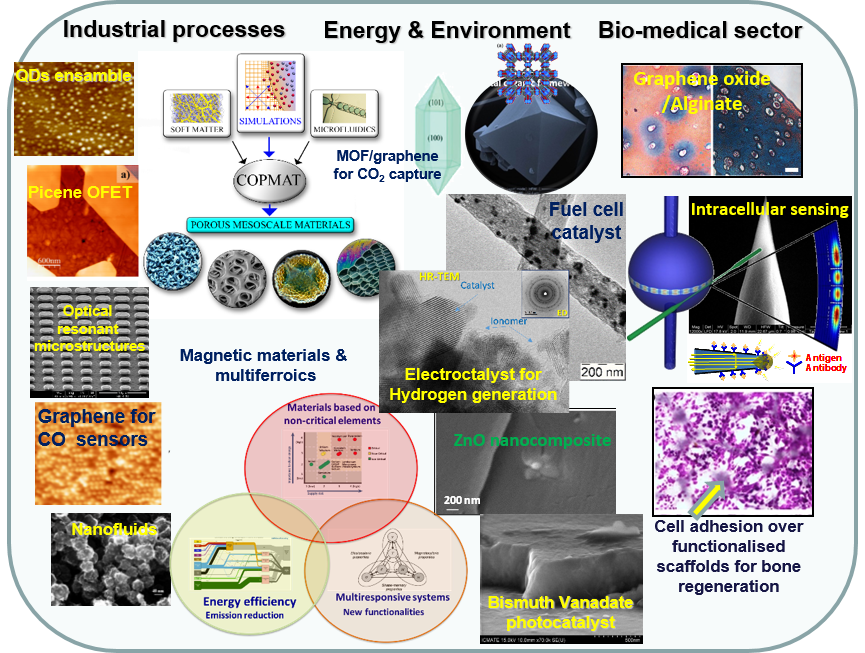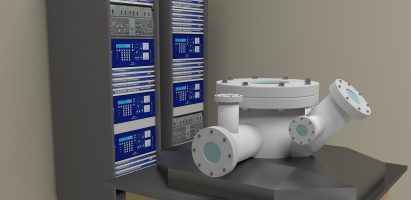Objectives: AP10 includes interdisciplinary skills for the synthesis, characterization, modelling and development of innovative materials and nanotechnologies for industrial processes, environmental, energy and bio-medical applications.
The aim is to achieve a strong social and economic impact for the materials and nanotechnologies developed in AP10 in relation to the industrial leadership and societal challenges.
Approach: High-level skills aimed at the nanoscale level production of advanced materials have been developed in AP10. The main objectives are addressed to the development of i) ADVANCED MATERIALS FOR INDUSTRIAL PROCESSES: materials for electronics and magnetism, optoelectronic devices, plasmonic systems, photonics, nanofluidics for (bio-) sensors ii) ENHANCED MATERIALS AND NANOTECHNOLOGIES FOR ENERGY AND ENVIRONMENT: materials for catalytic processes, electrochemical storage, nanofluids, electrolysis, storage, high efficiency fuel cells, adsorption heat pumps, photocatalysis and photovoltaics iii) ADVANCED MATERIALS AND NANOTECHNOLOGIES FOR BIO-MEDICAL USE: multifunctional contrast agents, tissue engineering of scaffolds for tissue regeneration, bio-mimetic hybrids.
The activities are supported by numerical modelling and simulation studies for the prediction and processing of data and processes.
The activities are supported by numerical modelling and simulation studies for the prediction and processing of data and processes.
Scientific Impact/Results: The AP involves multi- and interdisciplinary aspects based on the use of highly complementary and converging skills. This is confirmed by the quality and the number of research projects, both at European and National levels. The AP impact regards the development of materials, processes, and technologies to:
i) replace Critical Raw Materials ii) limit energy consumption iii) reduce emission of greenhouse gases iv) enable innovative solutions in sensitive contexts as healthcare iv) promote circular economy.

Download:


